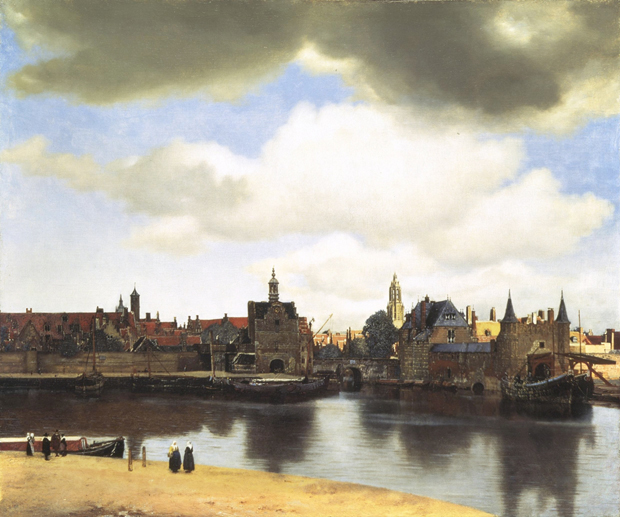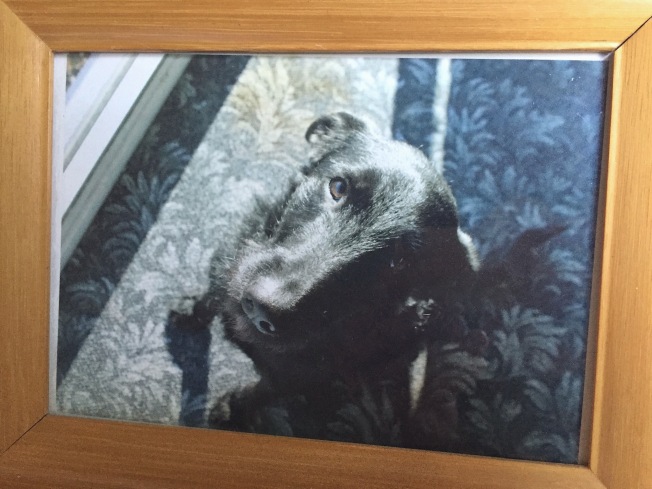I haven’t read Proust, but I intend to remedy that in the near future. Of course, this doesn’t mean that I can’t quote Proust, because people are always quoting him in this book or that, which is one of the reasons I feel compelled to read him. One day, when I’ve become an entirely different person (less the crow I am now, ever caught up by shining bits of things), I will not quote a book I haven’t read. Wouldn’t that be something?
But first, a word from Matthew Del Nevo, who wrote The Work of Enchantment:
…for to be captivated by the right things is to be enchanted. A child can be enchanted by almost anything, and even quite terrible things will not disenchant a little girl or boy…So we are prone from the first for enchantment; we are geared for it, and by that I do not mean a childish “magical” sense of enchantment with fairies or scary monsters, but enchantment in the strong sense, which we will also call metaphysical experience; it comes through art as the quintessence of life…
Jonah is a case in point for enchantment, especially the “quite terrible things”. Zombies, ghosts, Dementors and a certain level of bloody action. Death (which many would argue isn’t one of the quite terrible things—though just as many would argue it is), hospitals, and Voldemort all rank high. He will watch the Wicked Witch melting, the Tangled mother falling from her tower, and the final transformation of Anikin into Darth Vader (via a river of fire and robotic assistance) until I set the timer and say “five more minutes until enough.”
Is enchantment the why behind my love of Patty Griffin’s terrifically melancholy songs? I would contend yes, a good majority of the time. The woman “with the voice torn in all the right places” (Pierce Pettis) paints with her words and her instrument, in much the same and unique way as Chagall, Rothko or Vermeer. I’ll be returning to Vermeer directly, but let’s do Proust for the moment.
Del Nevo devotes three chapter to him, and this passage (Del Nevo quoting Proust) gets at that “quintessence of life” I quoted earlier. It’s from The Captive (1923) and centers on the character Bergotte gazing on a painting by Vermeer called A View of Delft*— “a picture which he adored and imagined that he knew by heart.”

But Bergotte learns from an art critic that “a little patch of yellow wall (which he could not remember) was so well painted that it was, if one looked at it by itself, like some priceless specimen of Chinese art, of a beauty that was sufficient in itself.” Bergotte is terminally ill, but he rouses himself out of the house to look upon that yellow wall:
At last he came to the Vermeer which he remembered as more striking, more different from anything else that he knew, but in which, thanks to the critic’s article, he remarked for the first time some small figures in blue, that the ground was pink, and finally the precious substance of the tiny patch of yellow wall. His giddiness increased…
[Cut here to Bergotte considering his life’s work:]
“That’s how I ought to have written…My last books are too dry. I ought to have gone over them with several coats of paint, made my language exquisite in itself, like this little patch of yellow wall.” Meanwhile he was not unconscious of the gravity of his condition.
As Bergotte sinks into death before the painting, he mutters, “Little patch of yellow wall, with a sloping roof, little patch of yellow wall.”
Looking (Del Nevo says we must gaze, which is a receptive ability matured through culture and education) at the Vermeer above, it’s virtually impossible to discern which patch of yellow he’s talking about. But I agree with Lorenzo Renzi when he says, “what in Proust has been unified in a single detail, in Vermeer’s painting is strewn out over the whole painting.” This isn’t about pinpointing a detail, it’s about knowing some one thing absolutely—which isn’t the same as knowing everything about some one thing. As Del Nevo puts it, “to know [one thing] even more intimately than one’s own creations, one’s own offspring; this is something great. This is enchantment. It is a metaphysical experience. This is an exemplary death.”
Here we are at death again. Enchantment seems to me a being-led-on, even if it be (as it will always be, one way or another) to death. “Short of a tragedy or a ruinous childhood,” writes Del Nevo, “we die of what we live for…so that, despite all consequences, even the most ultimate, we are moved, literally moved, if we hear something about it that we cannot remember and do not think we ever knew.”
My often quite literal mind leads me here back to England, to a vegetarian cafe a friend and I would meet up at. It was situated on a narrow street, and some days I would go there alone just to stare out the plate glass at a worn down brick building of a wall across the way. I loved that wall. I loved it like I love my dogs, if not quite how I love my children, though maybe like I love my husband. Matthew Del Nevo’s exploration of enchantment names what that wall was. Even then I would have told you (however irrational it may have sounded) that the wall was “something the soul cannot do without unless it is to starve” (Del Nevo). It was some thing by which I took my own measure—of who I was and who I wanted to become.
*[Del Novo mistakenly references Vermeer’s painting, Street in Delft, as the work of art attended to in The Captive, which I only discovered after attempting to find the painting myself. Personally, I’m more taken captive by Street in Delft (see below). I could gaze all day at those patinated shutters. The green of it!]





















